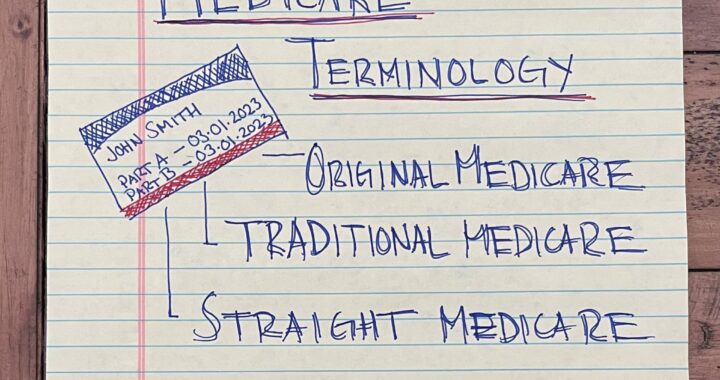Medicare is a federal health insurance program that provides coverage to millions of Americans, primarily those who are over 65 years of age or have certain disabilities. One thing that can be confusing for Medicare beneficiaries is the different names used to refer to the program. Specifically, the terms Original Medicare, Traditional Medicare, and Straight Medicare are often used interchangeably by both doctors and beneficiaries. In this post, we'll explore what these terms mean and how they are used in the medical world.
First and foremost, it's important to understand that Original, Traditional and Straight Medicare are all referring to the same thing: the federal health insurance program that is comprised of Parts A and B. Part A provides coverage for hospital stays, while Part B covers doctor visits, preventive care, and other out-patient medical services. This program is known as "Original Medicare" because it was the first version of Medicare that was created by the federal government in 1965.
So why the different names? The reality is that doctors and other medical professionals may use the terms interchangeably simply because they have different preferences or are used to different language. In some cases, doctors may use the term "Traditional Medicare" to refer to the original version of Medicare that has been in place for decades. Other providers may use the term "Straight Medicare" to differentiate this program from Medicare Advantage, which is a private insurance option that is an alternative to Original Medicare.
It's also worth noting that some Medicare beneficiaries may use these terms interchangeably, even if they are not aware that they are all referring to the same thing. This can create confusion, especially for those who are new to Medicare or who are navigating the healthcare system for the first time.
So, if you're a Medicare beneficiary, what should you know about these different terms? First and foremost, it's important to understand that Original Medicare, Traditional Medicare, and Straight Medicare are all referring to the same program. While doctors and other medical professionals may use different terms, the coverage and benefits are the same across the board.
If you're ever unsure about what a doctor or other healthcare provider means when they use these terms, don't be afraid to ask for clarification. Remember, Medicare can be complicated, and it's okay to ask questions or seek help to navigate the system. Ultimately, what matters most is that you're getting the healthcare coverage and services you need to stay healthy and live your best life.

